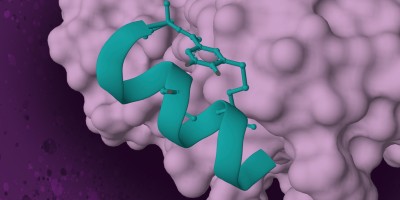We are three academics who are active on social media. We explore the motivations for and benefits of engaging with social media, as well as its costs and risks. Overall, we believe this engagement to be a net benefit for us, our employers and for wider society.
References
Key, Q., Ahn, Y.-Y. & Sugimoto, C. R. A systematic identification and analysis of scientists on twitter. PLOS ONE 12, e0175368 (2017).
Bastian, H. Who’s who on science Twitter and who counts? PLOS BLOGS https://blogs.plos.org/absolutely-maybe/2017/04/28/whos-who-on-science-twitter-and-who-counts (2017).
Côté, I. M. & Darling, E. S. Scientists on Twitter: preaching to the choir or signing from the rooftops. FACETS 3, 682–694 (2018).
Gempf, K. L. Announcing the 2019 #RSCPoster Twitter Conference winners. RCS http://blogs.rsc.org/rscpublishing/2018/12/10/rsc-twitter-poster-conference-2019 (2018).
House of Commons Science and Technology Committee. ‘My Science Inquiry’ Sixteenth Report of Session 2017–2019. parliament https://publications.parliament.uk/pa/cm201719/cmselect/cmsctech/1716/1716.pdf (2019).
Britton, B. [Tweet]. Twitter https://twitter.com/BMatB/status/1123820553389916165 (1 May 2019).
Jarreau, P. et al. Using selfies to challenge public stereotypes of scientists. PLOS ONE 14, e0216625 (2019).
Mccullagh, E. A. et al. Request a woman scientist: a database for diversifying the public face of science. PLOS Biol. 17, e3000212 (2019).
Gaston, N. [Tweet]. Twitter https://twitter.com/nicgaston/status/1123437220990472192 (30 Apr 2019).
Hall, N. The Kardashian index: a measure of discrepant social media profile for scientists. Genome Biol. 15, 424 (2014).
Barnes, C. The h-index debate: an introduction for librarians. J. Acad. Librariansh. 43, 487–494 (2017).
Rownland, I. Is it time to bury the h-index? The Bibliomagician https://thebibliomagician.wordpress.com/2018/03/23/is-it-time-to-bury-the-h-index (2018).
Minasny, B. et al. Citations and the h index of soil researchers and journals in the Web of Science, Scopus, and Google Scholar. PeerJ 1, e183 (2013).
Malesios, C. C. & Psarakis, S. Comparison of the h-index for different fields of research using bootstrap methodology. Qual. Quant. 48, 521–545 (2014).
University and College Union petitions. University of Leeds statutes: no sackers’ charter. UCU http://speakout.web.ucu.org.uk/university-of-leeds-statutes-no-sackers-charter/ (2018).
Swansea University. Swansea University, social media guidelines. Swansea University https://www.swansea.ac.uk/media/Social%20Media%20Guidelines.pdf (2019).
Grand, A. et al. ”We muddle our way through”: shared and distributed expertise in digital engagement with research. J. Sci. Commun. 15, 1–23 (2016).
Crockett, M. J. Moral outrage in the digital age. Nat. Hum. Behav. 1, 769–771 (2017).
Chapman, E. [Tweet]. Twitter https://twitter.com/DrEOChapman/status/1126575152412672001 (9 May 2019).
Acknowledgements
B.B. acknowledges funding of his research fellowship from the Royal Academy of Engineering. The authors thank Emma Chapman for insightful discussions, and remind everyone that tweets often contain typographical errors associated with autocorrect. The authors also thank the 40 or so Twitter users who provided reviewer comments, via google docs, prior to publication of this article.
Author information
Authors and Affiliations
Corresponding authors
Ethics declarations
Competing interests
B.B., C.J. and J.W. are members of TIGERinSTEMM.
Additional information
Related links
Imperial College London Social Media Guidelines: https://www.imperial.ac.uk/staff/tools-and-reference/web-guide/tools/social-media/
The authors of this article can be found on Twitter: @bmatb, @seis_matters, @jesswade
The Inclusion Group for Equity in Research in STEMM: https://www.tigerinstemm.org/
Rights and permissions
About this article
Cite this article
Britton, B., Jackson, C. & Wade, J. The reward and risk of social media for academics. Nat Rev Chem 3, 459–461 (2019). https://doi.org/10.1038/s41570-019-0121-3
Published:
Issue Date:
DOI: https://doi.org/10.1038/s41570-019-0121-3
- Springer Nature Limited


